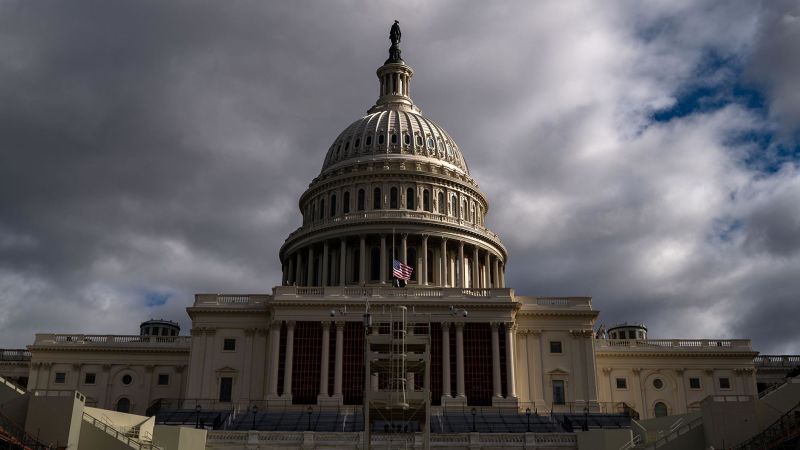Washington
CNN
—
A month into the new Congress, House and Senate Republicans are still not on the same page on how to tackle President Donald Trump’s agenda raising the possibility the two chambers could be on a collision course that imperils Trump’s domestic priorities in the first months of his second term.
On Wednesday, Senate Republicans announced they were plowing ahead on their two-step strategy to tackle defense and border provisions first and then move to the more complicated work of tax cuts later in the year.
GOP Sen. Lindsey Graham of South Carolina, the budget chairman, told Republicans in a private lunch he planned to move the first step of the process – a budget resolution – next week, putting the Senate on track to potentially outpace the House’s own work and possibly putting the House in a position where it may have to choose between swallowing the Senate’s product or doing nothing at all.
“I’ve always believed that one big, beautiful bill is too complicated,” Graham said. “What unites Republicans, for sure, is border security and more money for the military. It’s important we put points on the board, and this plan of the president’s to deport people and get rid of the gangs and the criminals is running into a wall of funding.”
The Senate’s move comes as House Republicans have been embroiled in an intense intra-party debate about the level of spending cuts to pursue as they look to jam all of Trump’s priorities – defense spending, border security and tax cuts – into one major bill. Members of the House Freedom Caucus such as South Carolina Rep. Ralph Norman have been pushing for roughly $2 trillion in cuts while others have argued the spending cuts should be roughly half that. Members of the Freedom Caucus have also been touting that they think the House GOP should break the bill into two parts, running afoul of both House Speaker Mike Johnson and Trump’s view.
House Republicans have been trying to iron out their differences for weeks. The conference focused on their agenda during a three-day retreat in Florida last week, and key House Republicans met for hours on Tuesday night as they sought to find a path forward on their budget blueprint.
“I think most members understand we are getting much closer to hard numbers and this is where things get real,” Rep. Dusty Johnson, a Republican from South Dakota, said.
During Tuesday’s meeting with House Ways and Means Chairman Jason Smith of Missouri, conservatives, including Rep. Chip Roy of Texas, and more centrist members like Don Bacon of Nebraska and David Valadao of California, sought to find additional savings they could all agree on, according to people familiar with the meeting. One number that was discussed was $1.65 trillion in cuts, far above the $300 billion that GOP leadership had initially floated. Still, it’s not yet clear what the full conference can agree on nor is it clear if members could all agree on what programs to cut in order to reach the target.
Some House Republicans are also losing patience with the House speaker who some conservatives have argued is dragging his feet. Johnson is working with a narrow majority and has no room for error. In the next several weeks, he cannot lose a single Republican vote on the floor, making it almost impossible to find a budget resolution that can pass in such a diverse GOP conference.
The dynamics have led House Republicans to struggle to find a way forward. Multiple members of the House GOP budget panel acknowledged it was unlikely they could release a budget resolution – let alone hold a markup – this week.
“Obviously we’d like to have more but we’re limited in what we can do,” said Rep. Buddy Carter, a Republican from Georgia.
The tension spilled into view Wednesday morning following a closed-door GOP caucus meeting when Rep. Byron Donalds, a Republican from Florida, confronted Speaker Johnson about the delay in moving something forward.
“I think we are stuck in the mud,” Donalds told reporters after the meeting. “Call it paralysis of analysis, and I think at this point we just need to make a clear decision.”
House leaders have tried to downplay the Senate’s efforts to move legislation in two parts even now as the upper chamber appears poised to go first.
“The Senate always has their own thing,” GOP Whip Tom Emmer said. “The House will lead.”
CNN’s Manu Raju and Morgan Rimmer contributed to this report.



